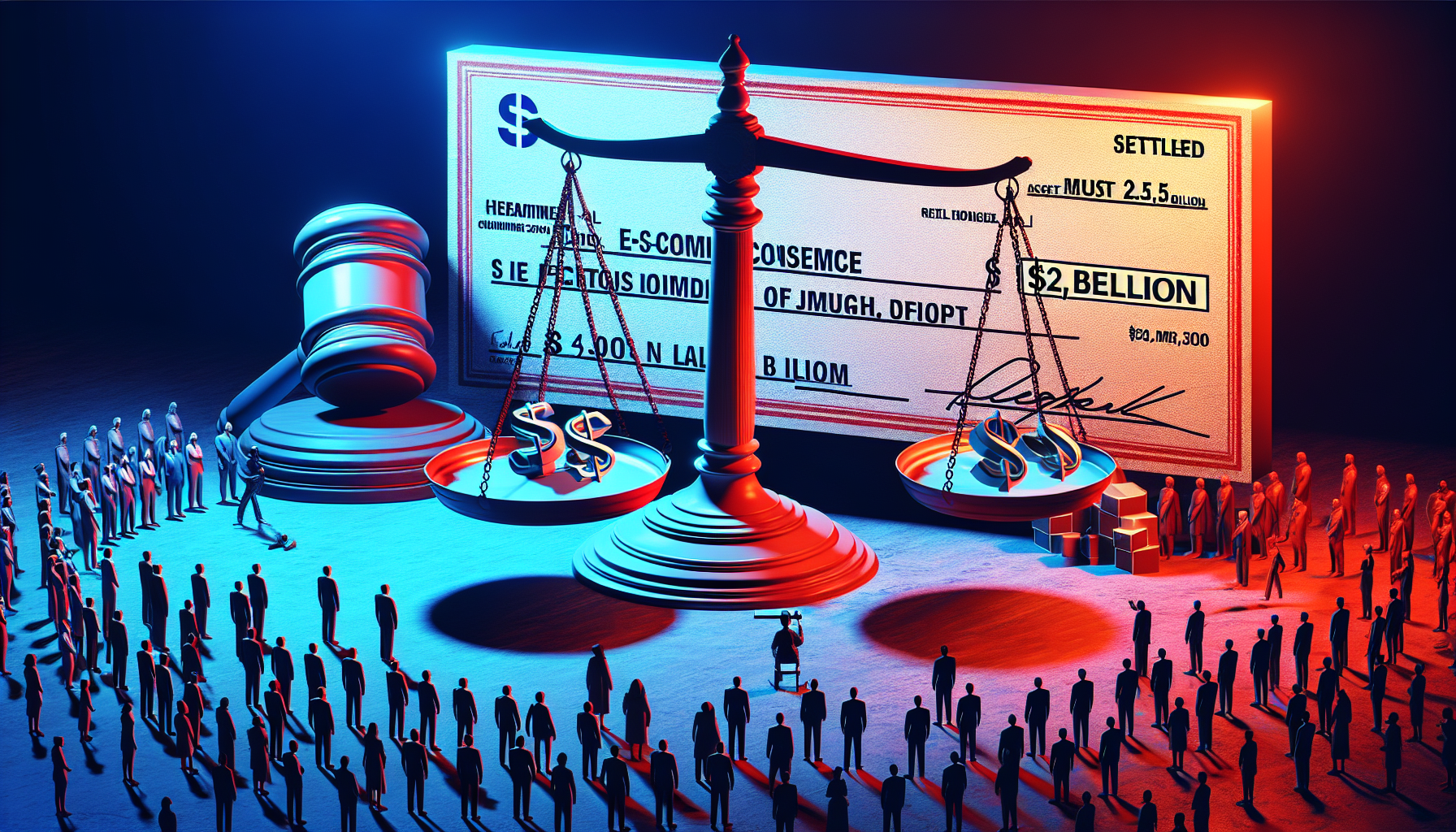
tl;dr
Amazon settles FTC lawsuit over Prime membership practices, paying $2.5 billion to resolve claims of deceptive enrollment and cancellation barriers. The deal avoids a trial, mandates new subscription rules, and refunds 35 million customers, though Amazon admitted no wrongdoing.
**Amazon Settles FTC Lawsuit Over Prime Membership Practices for $2.5 Billion**
In a landmark resolution, Amazon has agreed to pay $2.5 billion to the Federal Trade Commission (FTC) to settle allegations that the company deceived users into enrolling in its Prime subscription program and obstructed their attempts to cancel it. The settlement, announced on Thursday, came just three days into a trial in Seattle federal court, allowing Amazon to avoid a jury verdict that could have imposed larger penalties.
The FTC’s 2023 lawsuit, filed under the Biden administration, accused Amazon of misrepresenting the terms of its Prime membership, which has over 200 million global users. The agency alleged that the company lured tens of millions of customers into signing up for Prime through ambiguous enrollment processes and made it excessively difficult to cancel subscriptions. The case also targeted three senior Amazon executives, who faced potential individual liability if the FTC prevailed.
Under the settlement, Amazon will pay a $1 billion civil penalty to the FTC and refund $1.5 billion to an estimated 35 million customers affected by “unwanted Prime enrollment or deferred cancellation.” Eligible customers will receive $51 within 90 days. Notably, Amazon admitted **no wrongdoing**, a common tactic in regulatory settlements to avoid legal precedents.
The agreement imposes strict new requirements on Amazon’s subscription practices. The company must now ensure “clear and conspicuous” disclosures during enrollment, obtain explicit consumer consent before charging for subscriptions, and provide an “easy way” for users to cancel. Additionally, Amazon’s Prime chief, Jamil Ghani, and senior vice president Neil Lindsay—formerly a Prime executive—will be barred from engaging in unlawful conduct.
FTC Chairman Andrew Ferguson hailed the settlement as a “monumental win” under the Trump administration, stating the agency is “committed to fighting back when companies try to cheat ordinary Americans out of their hard-earned pay.” However, the timing of the statement raises questions, as the lawsuit was filed in 2023 under the Biden administration. The FTC’s leadership has since transitioned, and the agency’s enforcement priorities have shifted under different administrations.
Amazon’s spokesperson, Mark Blafkin, emphasized that the company “has always followed the law” and that the settlement allows it to “move forward and focus on innovating for customers.” The $2.5 billion penalty, while the largest ever imposed by the FTC, represents roughly 0.1% of Amazon’s $2.4 trillion market capitalization. Following the announcement, Amazon’s stock rose slightly, reflecting investor confidence in the company’s resilience.
The settlement underscores broader tensions between tech giants and regulators over consumer protection and market dominance. While Amazon’s Prime program has become a cornerstone of its business, generating billions in revenue, it has also faced scrutiny for its practices. The FTC’s case against Amazon for allegedly stifling competition in e-commerce remains pending, with a trial scheduled for 2027. This ongoing litigation could further test the company’s ability to balance innovation with regulatory compliance.
As the tech sector grapples with intensified antitrust scrutiny, Amazon’s case highlights the challenges of navigating complex regulatory landscapes. The settlement serves as a cautionary tale for firms operating in markets where consumer trust and legal compliance are increasingly intertwined. For now, Amazon has mitigated immediate legal risks, but its broader battles with regulators are far from over.
**Key Takeaways:**
- **Regulatory Pressure:** The FTC’s actions signal a growing focus on consumer protection in the tech sector.
- **Market Dynamics:** Amazon’s $2.5 billion settlement, while significant, underscores the scale of its operations and the high stakes of regulatory compliance.
- **Future Litigation:** Ongoing antitrust cases against Amazon highlight the tension between corporate dominance and fair competition.
As the digital economy evolves, the interplay between innovation, consumer rights, and regulatory oversight will remain central to shaping the future of market dynamics.